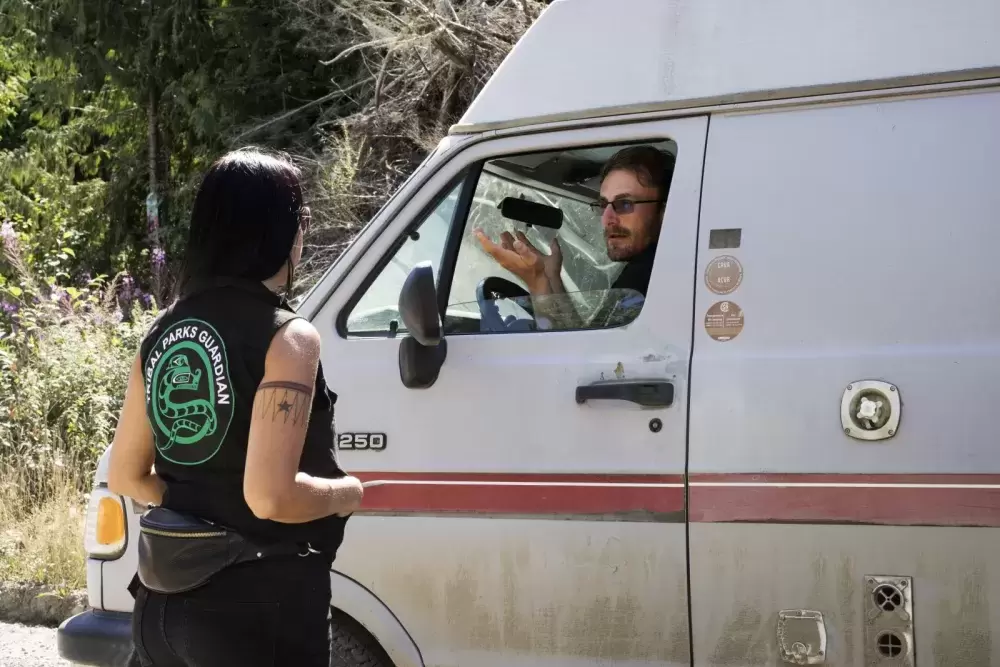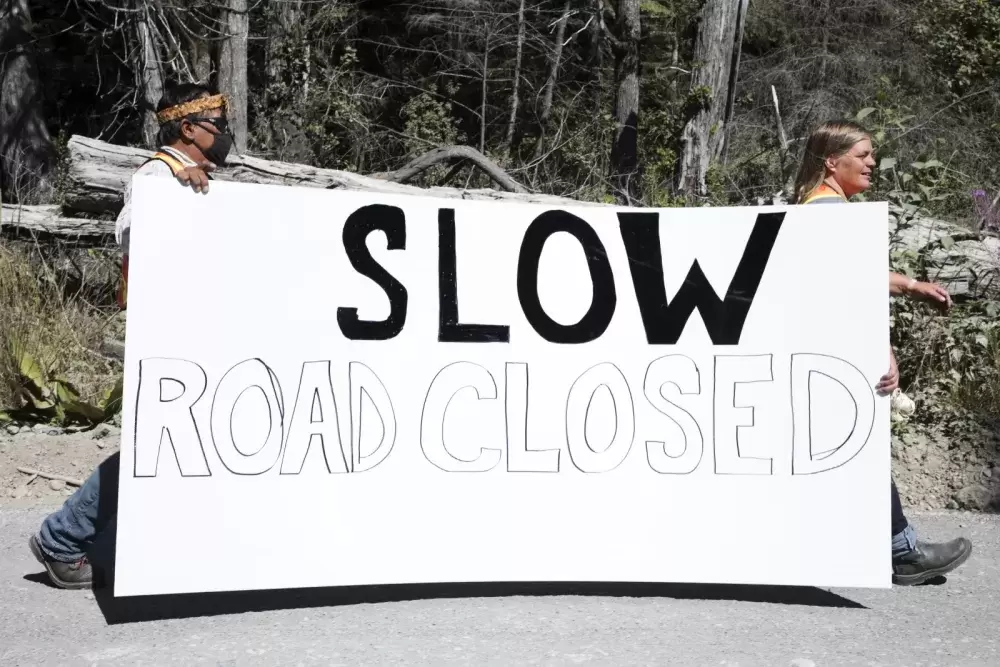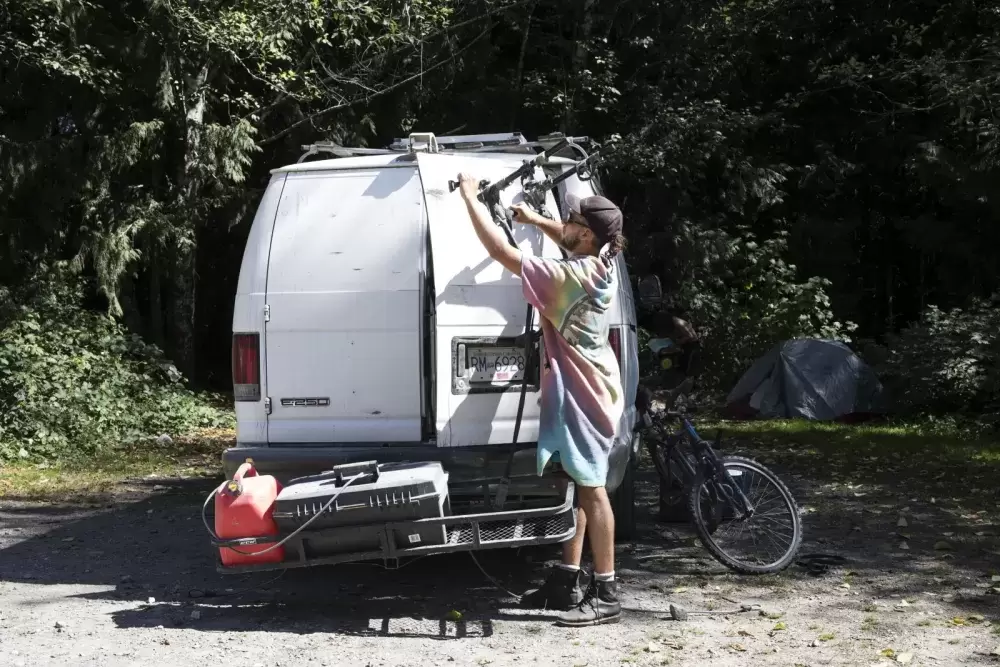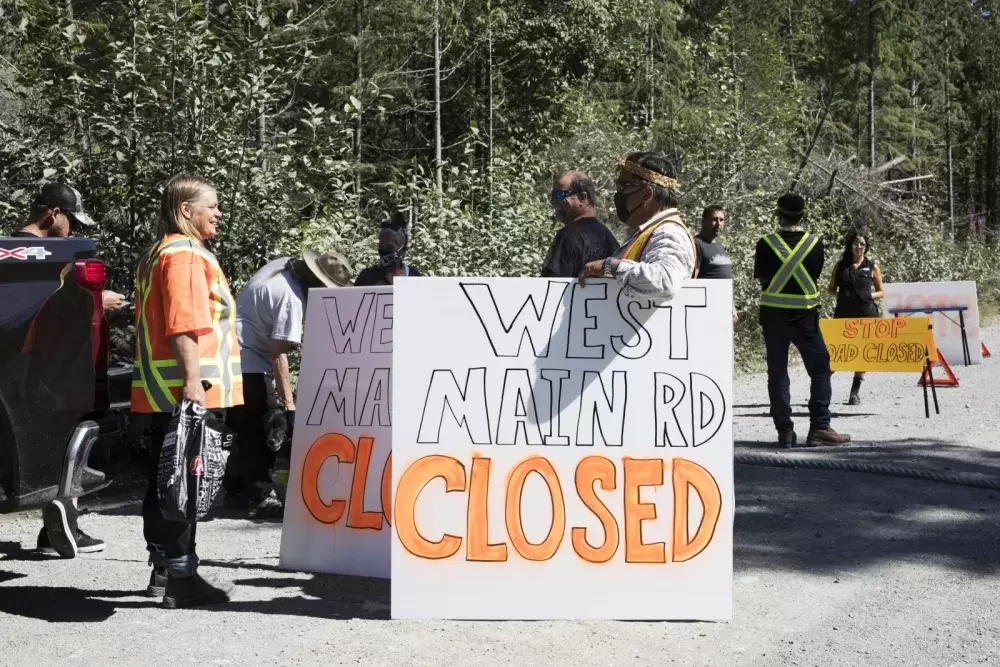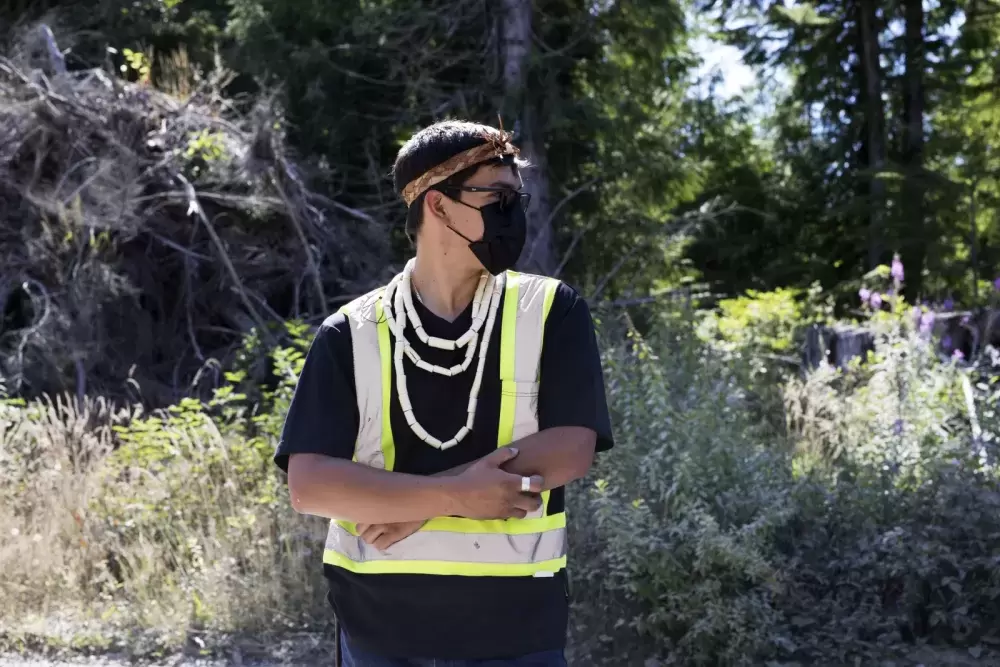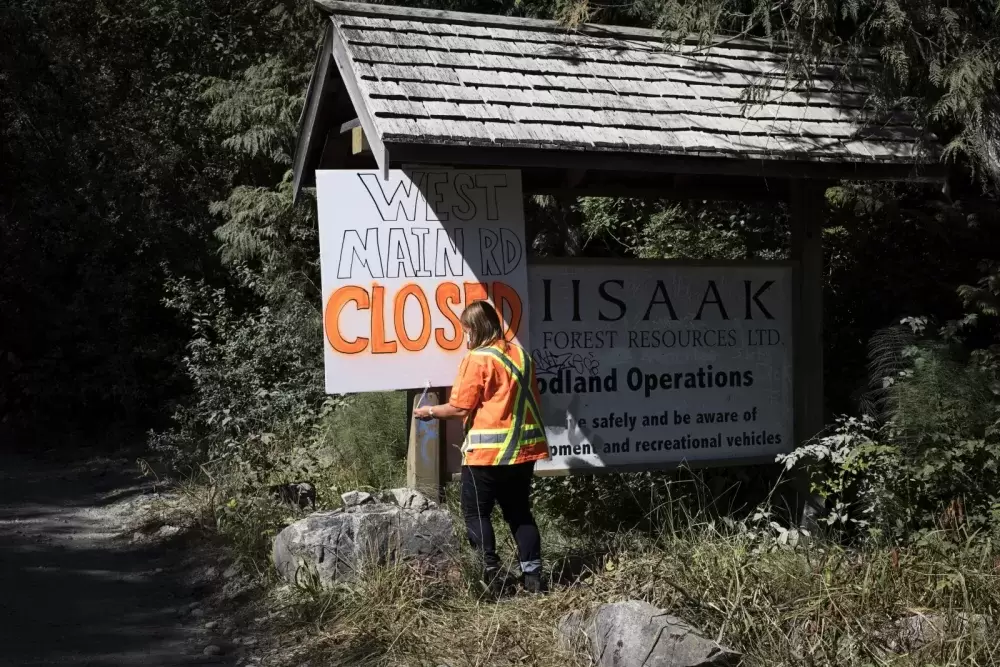A range of long-term and short-term campers, as well as seasonal workers from Tofino and Ucluelet, have been finding refuge down the Kennedy Lake logging road system for years.
Some evenings, the line-up of vehicles along the West Main Forest Service Road runs several kilometres long, as observed by the Ha-Shilth-Sa.
“Disheartened” by the amount of pollution being left behind and the disregard of the province-wide campfire ban, Tla-o-qui-aht First Nation member Timmy Masso said he could no longer sit idly by.
“I can’t allow my territory to become a Las Vegas for people,” he said. “We’re just not set up for the amount of tourists that are coming to this area and all the overflow is going to the back roads.”
On Tuesday, Aug. 10 he organized a road closure of west main to evict campers and block tourists from accessing the area.
He hopes that by shutting down the road down it will bring light to the situation and “get everyone at the same table,” he said.
Ucluelet RCMP were present to “make sure that everyone stayed safe and to keep the peace,” said Sgt. Kevin Smith.
Tla-o-qui-aht First Nation elected chief Moses Martin said he understands Masso’s plight.
Concerns about “all the campers and all the garbage and debris they’re leaving behind” are repeatedly brought to the chief and council, said Martin.
“It is an issue to deal with,” he said. “It’s going to take some collaborating with the municipality of Tofino and Ucluelet, as well as neighbouring tribes to get something done about it.”
In a statement released on August 10, Martin called for a meeting with regional leaders, First Nations, Tourism Tofino, as well as provincial and federal government representatives “to find solutions to this critical issue.”
Yuułuʔiłʔatḥ First Nation President Chuck McCarthy met with Masso on Tuesday in front of the east main entrance.
The issue is not new to McCarthy.
“We’ve seen this in the ‘60s and ‘70s,” he said. “It’s moved from the beaches to the bush.”
To address the potential “health hazards” and “fire issues,” McCarthy said that collectively, “we need to come up with some solutions.”
Pierre Dupont, who works as a dishwasher at Lil' Ronnie's Beachside BBQ in Tofino, was one of the campers evicted from west main. He had been living off the side of the logging road for the past two weeks.
Priced out of Tofino and without anywhere to park his van, he found a home on west main.
Because of the amount of van lifers in Tofino, Dupont said he understands why people aren’t allowed to park their vans in town. And yet, restaurants need dishwashers, he said.
Tofino caters to tourists, he said – not to dishwashers.
Ucluelet Mayor Mayco Noel said that COVID-19 has exacerbated the backroad lifestyle around Kennedy Lake.
“It doesn't matter if you’re from an Indigenous or non-Indigenous community on the west coast, we all have zero tolerance for the activities going on there because it is our backyard,” he said.
The work that Masso is doing to bring the subject to the forefront is “necessary” in order to get the attention of provincial and federal leaders, he said.
“The west coast leadership has very much tried to exhaust avenues on their own without much support,” he said. “A lot of the people that are the decision makers don't reside on the west coast, so they don't see the magnitude of the issue.”
In the Spring of 2021, the Alberni-Clayoquot Regional District (ACRD) reached out to the province, local government, First Nations, and federal agencies to discuss strategies on how to address the concerns about the “large number of transient campers occupying the west main area in 2020,” according to the Ministry of Lands, Natural Resource Operations and Rural Development.
A working committee was subsequently formed with representatives from the ACRD, local First Nations, as well as all levels of government, according to the ministry. Three meetings were held between February and July 2021 to discuss strategies to manage the issue.
“For our part, natural resource officers attended the sites, conducted a thorough inventory [and] inspection along the west main, educated the public on the Land Act and camping rules, and posted signage with information regarding the Land Act and camping,” said the ministry.
Nine years ago, Masso’s brother Hjalmer Wenstob attempted to clean the area up by establishing a campground and removing some of the “long-term squatters” during a summer internship with Tribal Parks.
When he returned to Redneck Beach after the May long-weekend that year, he said the barricades were torn down and all of the new picnic tables Tribal Parks had built were piled up and lit on fire.
The damage resulted in a large forest fire and eight trees were felled into the lake to prevent it from further spreading, Wenstob recounted.
He has since avoided the area because “it’s too upsetting.”
“There's a lot of drug activity,” he said. “There's a lot of violence. There's a lot of refuse everywhere. I'm not bringing my kids up here. This isn't a place to go and have fun. This is a place that just really hurts my heart.”
Instead, he carved a sign to welcome visitors to Tla-o-qui-aht Ha'houlthee (traditional territory), that was hung along Highway 4.
“At least there would be an acknowledgement of our people and an acknowledgement of the territory we’re in,” he said.
Feeling encouraged by the support, Masso said “I think change is going to happen.”
“I hope [change] can keep going,” he said. “And that we can properly assess the situation and hopefully open it up again for people to come back. But we need to do [so] with people coming in with respect.”

